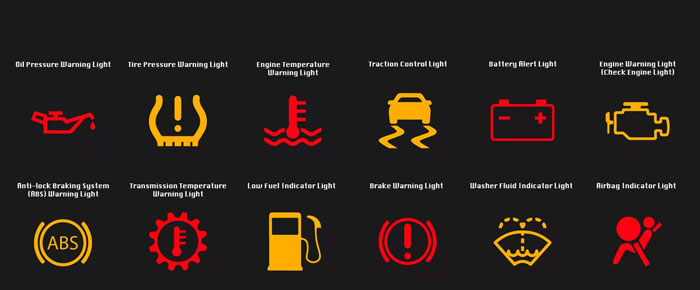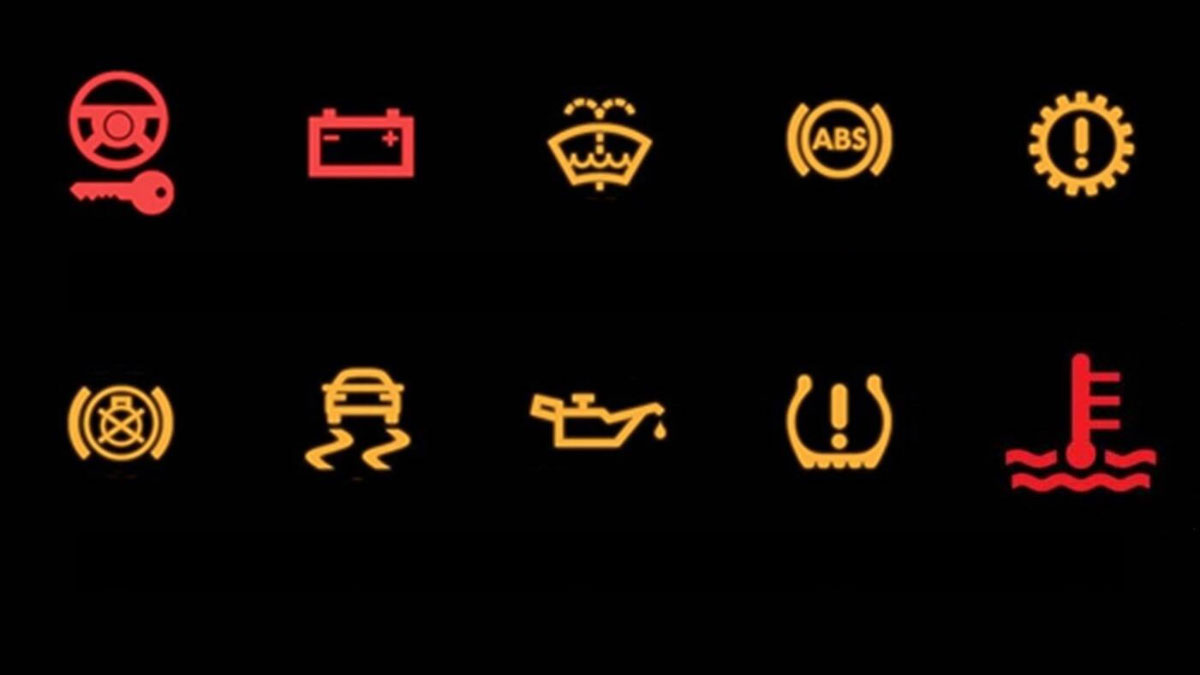So, you’re cruising down the road, wind in your hair, tunes blasting, feeling like you own the world. But wait, what’s that strange noise coming from under the hood? Ignoring engine problems is like pretending that weird noise is just your car’s way of singing along to your favorite song. Spoiler alert: it’s not.
Picture this: you’re at a red light, and your car starts shaking like it’s doing the cha-cha. Ignoring these signs from your engine is like playing a game of automotive roulette. Trust me, you don’t want to gamble with your ride or your wallet.
Common Signs Your Engine Needs Attention
When it comes to your car’s engine, it’s like having a conversation with your vehicle. It speaks to you in its unique way, telling you when things are not quite right. Here are some common signs that your engine is in desperate need of some tender loving care:

Overview of Key Engine Symptoms
- Weird Noises: If your engine starts sounding like a broken symphony orchestra, it’s time to pay attention. Clanking, knocking, or hissing sounds are not normal engine lullabies.
- Shaky Shaky: Feeling like you’re on a rollercoaster ride even on smooth roads? Your engine might be the culprit. Unusual vibrations could signal underlying issues.
- That Pesky Check Engine Light: Don’t ignore this little troublemaker. It’s there for a reason, and that reason might be your engine crying for help.
- Thirsty Engine: Is your car suddenly gulping down gas like a camel in the desert? Your engine’s thirst might be a cry for help.
- Smoke Signals: No, not actual smoke signals, but if your exhaust pipe is blowing out smoke like a faulty chimney, your engine is definitely not enjoying its day.
Importance of Timely Recognition
Recognizing these signs promptly is akin to being a superhero for your engine. Ignoring them is like giving your car a recipe for disaster. So, the next time your engine tries to tell you its life story through strange sounds and behaviors, be its attentive listener. Your ride’s happiness depends on it.
Identifying Major Engine Issues
Alright, folks, let’s jump into the nitty-gritty of identifying major engine issues in your beloved four-wheeled friend.
Misfires and Power Loss
When your car starts feeling a bit under the weather and decides to throw a tantrum in the form of misfires and power loss, it’s time to pay attention. Imagine your engine as a picky eater – if it’s not firing on all cylinders, it’s not going to perform at its best. Don’t let your car be the grumpy toddler of the road; address misfires promptly.
Overheating and Coolant Problems
Picture this: your engine is having a hot flash, and it’s not pretty. Overheating and coolant problems can turn your peaceful drive into a steamy mess. Your engine needs to stay cool like a cucumber to avoid meltdowns. Keep an eye on those temperature gauges, folks, or your car might just throw a fiery fit.
Unusual Noises From the Engine
Cars aren’t known for their melodious tunes, but when your engine starts belting out some unusual noises, it’s time to listen. Clunks, bangs, and whirrs are its way of saying, “Hey, something’s not right here!” Ignoring these sounds is like pretending your car has taken up a new hobby as a percussionist. Listen up, folks, and give your engine the attention it deserves.
Specific Engine Problems Not to Ignore
Alright, folks, let’s jump into some specific engine problems you definitely don’t want to brush off. Ignoring these issues could lead to more significant troubles down the road, and we don’t want that. So, keep an eye out for these red flags in your car’s engine!
The Engine Won’t Start
Picture this: you’re all pumped up for a road trip, you jump into your car, turn the key, and… nothing. It’s like the engine is on strike! Ignoring this issue is like trying to start your day without coffee – it just doesn’t work. If your engine is playing hard to get, it could be due to a dead battery, a faulty starter motor, or even a fuel system problem. Get this sorted before you’re left stranded like a lost puppy!
Persistent Check Engine Light
Ah, the infamous check engine light – the little troublemaker that haunts us all. If this light becomes your car’s new best friend, it’s time to pay attention. Ignoring it is like pretending you didn’t see your friend wave at you – rude and possibly regrettable. That tiny light could signal various issues, from a loose gas cap to a failing catalytic converter. Don’t make your car carry that warning sign around like a fashion statement – get it checked out!
Oil Leaks and Low Oil Pressure
Imagine your car leaving a trail of oil behind it like a snail with a leaky shell. Oil leaks are no joke and can lead to some slippery situations if not addressed. Low oil pressure could mean your engine isn’t getting the lubrication it needs, and that’s bad news. It’s like running a marathon without water – you’re gonna burn out. Keep an eye out for oil puddles under your car and that oil pressure gauge – your engine will thank you!
Smoke and Steam Emissions
If your car starts puffing out smoke or steam like a wannabe magician, it’s time to grab your mechanic’s hat. Smoke signals from your engine are never a good sign – it’s not trying to communicate; it’s screaming for help! Whether it’s blue, white, or black smoke, each color tells a different story – none of them end well. It’s like your car is auditioning for a role in a steam engine cosplay, but we all know it’s not fooling anyone. Address this issue before your engine stages a dramatic exit!
Tips on Preventing Engine Damage
I always say, taking care of your car’s engine is like taking care of a delicate flower garden—okay, maybe not as pretty, but just as important! Here are some fun ways to prevent your engine from throwing a tantrum:
Regular Maintenance and Checks
- Oil Is Your Engine’s Best Friend: Make sure to check your oil level regularly, just like how you check if you have enough coffee in the morning. Low oil can make your engine throw a fit!
- Coolant Cool as a Cucumber: Keep your engine from overheating by checking and topping up the coolant. Trust me; no engine wants to be a hot mess!
- Filters Are Your Car’s Nose: Change those air and oil filters as often as you change your mind about what to eat for dinner—your engine will thank you later!
- Easy on the Pedal: Don’t treat your gas pedal like a hot potato. Smooth driving can help prevent wear and tear on your engine, just like how you smoothly avoid talking about your age.
- Calm Down, Speed Racer: Revving the engine like you’re in a Fast and Furious movie won’t get you Vin Diesel’s charm. Drive smoothly and save the engine from unnecessary stress.
Conclusion
Well, folks, there you have it! Remember, ignoring engine problems is like pretending your car is a magician and hoping the issues disappear in a puff of smoke – not gonna happen! From strange noises to pesky check engine lights, your car is trying to tell you something. Don’t be the person who ignores these warning signs and ends up with a car that’s more drama than a reality TV show. Take care of your engine like it’s the crown jewel of your vehicle, and you’ll be cruising smoothly down the road, leaving those engine problems in the dust. So, listen to your car, show it some love, and keep those wheels turning without a hitch!
Frequently Asked Questions
How can I tell if my car’s engine has a problem?
Common signs of engine trouble include strange noises, vibrations, high fuel consumption, check engine light on, and smoke from the exhaust.
What should I do if my engine doesn’t start?
If your engine fails to start, try shifting to neutral and restarting. If unsuccessful, aim for a safe spot off the road and keep steering firmly.
What are signs that my engine might be failing?
Listen for abnormal sounds like backfiring, hissing, or knocking. These indicate potential engine issues that need attention.
What causes engine failure?
The most common cause of engine failure is neglecting routine maintenance like oil changes, timing belt replacements, and coolant system care.
How can I prevent engine damage?
Regular maintenance is key to preventing engine damage. Ensure proper oil levels, monitor coolant and filters, and practice smooth driving to reduce engine wear.

